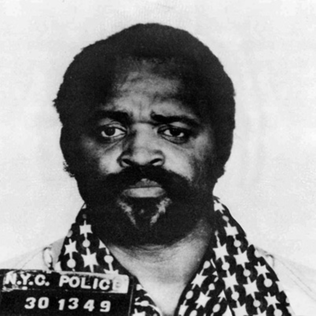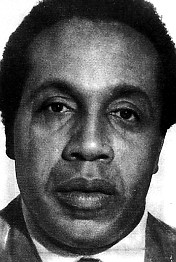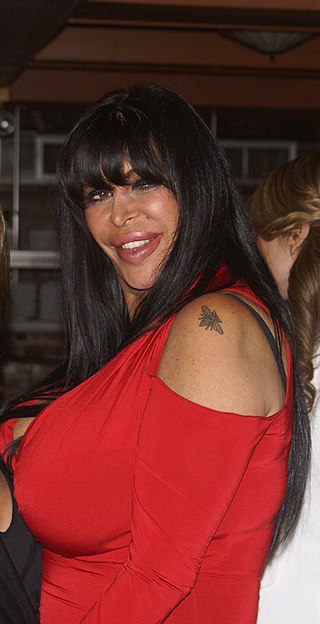
Adler Berriman "Barry" Seal was an American commercial airline pilot who became a major drug smuggler for the Medellín Cartel. When Seal was convicted of smuggling charges, he became an informant for the Drug Enforcement Administration and testified in several major drug trials. He was murdered on February 19, 1986, by contract killers hired by the cartel.

The Federal Bureau of Narcotics (FBN) was an agency of the United States Department of the Treasury, with the enumerated powers of pursuing crimes related to the possession, distribution, and trafficking of listed narcotics including cannabis, opium, cocaine, and their derivatives. Headquartered in Washington, D.C., the FBN carried out operations and missions around the world. The bureau was in existence from its establishment in 1930 until its dissolution in 1968. FBN is considered a predecessor to the Drug Enforcement Administration.

Leroy Nicholas Barnes was an American crime boss, active in New York City during the 1970s.

The United States Central Intelligence Agency (CIA) has been accused of involvement in the trafficking of illicit drugs. Books and journalistic investigations on the subject that have received general notice include works by the historian Alfred McCoy, professor and diplomat Peter Dale Scott, journalists Gary Webb and Alexander Cockburn, and writer Larry Collins. These claims have led to investigations by the United States government, including hearings and reports by the United States House of Representatives, Senate, Department of Justice, and the CIA's Inspector General. The various investigations have generally not led to clear conclusions that the CIA itself has directly conducted drug trafficking operations, although there may have been instances of indirect complicity in the activities of others.

Drug Wars: The Camarena Story is a 1990 American crime drama television miniseries based on the life of Enrique 'Kiki' Camarena, an undercover DEA who was abducted and killed by the Guadalajara Cartel in 1985. The series is directed by Brian Gibson and stars Steven Bauer in the titular role and Benicio del Toro as cartel leader Rafael Caro Quintero, alongside Elizabeth Peña, Miguel Ferrer, Treat Williams and Craig T. Nelson. The teleplay is based on Elaine Shannon’s non-fiction book Desperados and the Time magazine article of the same name. Filmmaker Michael Mann served as an executive producer, as well as co-writing one of the episodes.

Frank Lucas was an American drug lord who operated in Harlem, New York City, during the late 1960s and early 1970s. He was known for cutting out middlemen in the drug trade and buying heroin directly from his source in the Golden Triangle in Southeast Asia. Lucas boasted that he smuggled heroin using the coffins of dead American servicemen, as depicted in the feature film American Gangster (2007), which fictionalized aspects of his life. This claim was denied by his Southeast Asian associate Leslie "Ike" Atkinson.

Mr. Untouchable is an English-language documentary film for HDNet Films, directed by Marc Levin, and produced by Mary-Jane Robinson. The film, which opened in limited release on October 26, 2007, like the memoir, Mr. Untouchable: My Crimes and Punishments, addresses the rise and fall of Nicky Barnes, a former drug kingpin in New York City. The film includes first-hand testimony from Barnes himself and was produced by New York-based Blowback Productions.
Michael Levine is a former senior United States law enforcement agent, who was called "America's top undercover cop for 25 years" by the television show 60 Minutes. A 25-year veteran of the U.S. Drug Enforcement Administration (DEA), he is best known for his criticism of the U.S. Central Intelligence Agency (CIA) and the influence it has played on DEA operations. Levine has claimed the CIA was instrumental in the creation of the Bolivian drug cartel La Corporación, which he called the "General Motors of cocaine".

Banged Up Abroad is a British documentary/docudrama television series created by Bart Layton that was produced for Channel 5 and that premiered in March 2006. Most episodes feature stories of people who have been arrested while travelling abroad, usually for trying to smuggle illegal drugs, although some episodes feature people who were either kidnapped or captured while they were either travelling or living in other countries. Some episodes have featured real-life stories that first became well known when they were made the subject of a film: films that have been 're-made' in this way include Midnight Express, Goodfellas, The Devil's Double, Argo, Mr Nice and, to a lesser extent, Casino. A few episodes have focused on undercover infiltrations of criminal syndicates by law enforcement agents or individuals recruited by them.
Richard M. Roberts is an American former law enforcement officer and disbarred attorney. Roberts worked as a detective in the Essex County Prosecutor’s Office and Essex County Bureau of Narcotics. After completing law school at Seton Hall University and passing the bar examination, Roberts served as an Assistant Prosecutor in the Essex County Prosecutor's Office.
Celerino Castillo is a former agent for the United States Drug Enforcement Administration (DEA).

Roberto Suárez Gómez, also known as the King of Cocaine, was a Bolivian drug lord and trafficker who played a major role in the expansion of cocaine trafficking in Bolivia. In his prime, Suárez made $400 million annually, was one of the major suppliers of the Medellín Cartel as well as the leader of the largest Bolivian drug empire, and was considered to be the biggest cocaine producer in the world.
A drug lord, drug baron, kingpin, or lord of drugs is a type of crime boss in charge of a drug trafficking network, organization, or enterprise.

Frank Larry Matthews, also known as Black Caesar, Mark IV and Pee Wee, was an American drug trafficker and crime boss who sold heroin and cocaine throughout the eastern United States from 1965 to 1972. He operated in 21 states and supplied drug dealers throughout every region of the country. The Drug Enforcement Administration (DEA) ranks Matthews as one of the top ten drug traffickers in U.S. history and he is estimated to have had US$20 million in savings.
The Illegal drug trade in Puerto Rico is a problem from a criminal, social, and medical perspective. Located in the Caribbean, Puerto Rico has become a major transshipment point for drugs into the United States. Violent and property crimes have increased due in part to dealers trying to keep their drug business afloat, using guns and violence to protect themselves, their turfs, and drug habits.

Enrique "Kiki" Camarena Salazar was an agent of the Drug Enforcement Administration (DEA). In February 1985, Camarena was kidnapped by police officers hired by the Guadalajara Cartel. After being brutally tortured for information, Camarena was eventually killed. The U.S. investigation into Camarena's murder led to ten trials in Los Angeles for Mexican nationals involved in the crime. The case continues to trouble U.S.–Mexican relations, most recently when Rafael Caro Quintero, one of the three convicted traffickers, was released from a Mexican prison in 2013. Caro Quintero was again captured by Mexican forces in July 2022, reigniting discussions surrounding Camarena’s murder and its impact on enforcing drug policies domestically and abroad.
The Nine Trey Gangster Bloods or Nine Trey Gangsta Bloods (NTG) are a "set" of the United Blood Nation street gang, which is itself a set of the Bloods gang. The gang operates on the East Coast of the United States.
The Family was an organized crime group known for drug trafficking. The Family was founded by Akbar Pray in Newark, New Jersey in the early 1970s, and collapsed several years after he was sentenced to life in prison in 1990.

Angela Joyce "Big Ang" Raiola was an American reality television personality. She was the niece of Salvatore "Sally Dogs" Lombardi (1941–2009), a caporegime ("capo") and drug dealer in the Genovese crime family. Raiola dated gangsters and lived an opulent lifestyle.
Operation Lost Honor was the English translation of the name of a prominent investigation, "Honor Perdido." The investigation targeted police corruption in Puerto Rico that took place in August 2001. Organized by the US Federal Bureau of Investigation (FBI) and led by Special Agent Jeffrey Pelaez,Puerto Rico Police Officer Elvin Quinones, and undercover agent Arturo Ortiz (EXPO), the investigation was initiated in response to multiple reports about illegal activity within the Puerto Rico Police Department (PRPD). The twelve-month-long undercover operation targeted law enforcement officials suspected of involvement with the drug trade on the island. At the time it was the biggest case of officer corruption that the FBI had ever dealt with.












